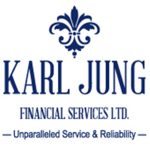By Adam Jung of Karl Jung Financial Services
In the absence of proper planning, the survival of the business may be affected by the death of the business owner or another key executive.
One solution is to purchase an insurance policy on the life of the business owner, shareholder or key employee. Here are some of the most common purposes of purchasing life insurance for a business which will be explored in further depth later on:
- funding a buy/sell shareholders agreement.
- to help offset the economic loss the company may incur due to the death of key employee.
- to provide funds to the owner/shareholders family to pay any taxes, estate costs or repay any debts.
- to provide income replacement for widow or children of the deceased
- to help pay off loans or lines of credit with a lending institution.

Why Make the Owner of a Life Insurance Policy a Corporation
Proceeds from the life insurance policy received by the corporation create a credit to the Capital Dividend Account (CDA). The difference of the Adjusted Cost Base (ACB) and the policy’s insurance death benefit is the amount credited to the CDA.
The credit received by the CDA can be paid out of the company as a tax free capital dividend to shareholders, the estate of the deceased, or creditors. A board resolution would determine how much of the capital dividend is declared and to whom it applies. In some situations a portion might be retained by the company like with a key man life insurance policy.
Where the corporation is eligible for the small business deduction and other corporate tax credits, there is a significant savings in the before-tax earnings required to pay premiums. This option compared to paying out of pocket for premiums personally can be advantageous; in particular when that individual’s average tax rate is greater than their companies corporate income tax rate.
These savings can become quite substantial as premiums are paid year after year, and from a psychological standpoint, there is a preference among shareholders to spend corporate dollars rather than personal dollars. Paying for a policy with corporate dollars is not always a easy black and white decision. It should be discussed with your adviser and accountant, as there can be disadvantages to owning a policy corporately which should be explored before implementing any insurance strategy. One possible disadvantage for example would be exposing the proceeds of the policy to creditors of the company.
When changing ownership of an existing life insurance policy to your company, or moving a policy out of your company into personal ownership, careful planning needs to be taken to avoid any unnecessary dispositions. Same goes for policy changes and transactions involving an existing policy owned by the company; In particular older policies with large cash values. Life insurance with large cash surrender values can also impact the valuation of a corporation’s shares owned by the shareholder whose life is insured.

Business Loan Protection
Many financial & lending institutions require the purchase of collateral life insurance equal to the balance of any outstanding loans. Particularly in small business situations, in which the death of a business owner may impair the value of business assets used to secure the debt. Regardless if it’s required, the business owner(s) may simply have a desire to have business debts fully paid off in the event of death, to allow the business to continue debt free, and securing business continuity for any heirs of the business.
In many small business situations, adequate financing is difficult to obtain. Creditors will often require that business owner(s) personally guarantee a loan. The untimely death of a business owner or another key executive may cause creditors to demand immediate repayment of outstanding business debts. Instead of forcing the liquidation of key business assets at unfavourable prices, (at a time when the business may already be severely impacted by the death) life insurance can provide much needed immediate liquidity. If the business owner has personally guaranteed these debts, the owner’s estate may be liable for any outstanding debts that the business cannot pay; which is a scenario we would want to avoid at all costs.
Generally, life insurance premiums paid for business loan protection are not deductible for tax purposes. However, in the case of a life insurance policy that has been collaterally assigned to a restricted financial institution, a portion of the premiums may be deductible. Pending that the borrower has taken a business loan, and the lender has put in writing that insurance is a condition of the loan, then they can deduct the Net Cost of Pure Insurance (NCPI). The NCPI can only be deducted on the portion of the policy actually being used to cover the debt.
*Eg. If the original policy is for $2million, and the original loan was for $2million, but the debt has been paid down to $1million by year 9 of the loan, he can only use half of the NCPI as a deduction. Lets say in this case the NCPI is $6,000 in year 9, and the premium is $3,800. Then $3,000 (50% of NCPI) of the $3,800 premium is tax deductible.
*This calculation could vary drastically from one individual to another, along with different life insurance products.
A life insurance policy purchased for business loan protection can improve the ability of a business to negotiate loans, and provide for the repayment of business debts in the event of the death of a business owner or another key executive, using tax-free life insurance proceeds. It can also prevent the business owner(s) or their estate from becoming personally liable for the business debts in the event of a death.
Now that we have covered the basics of corporate owned life insurance, in part 2 we will discuss Key Man life insurance, Buy Sell funded life insurance strategies, and other strategies involving permanent life insurance owned by the corporation.
Please feel free to reach out with any questions you have regarding your own insurance situation, we would be more than happy to assist you.

Karl Jung Financial Services
What makes us unique at Karl Jung Financial Services Ltd? Being a family owned and operated independent financial services company makes us a viable alternative to the big banks for our clients in New Westminster and on the Sunshine Coast. As independent insurance brokers we guide families and small businesses in finding the most appropriate life and disability insurance solutions for their own unique situation. By working with your own accountant and lawyer our goal is to ensure you are not financially at risk due to premature death or prolonged disability.
Are you hiring and want to get access to aligned candidates?

Spring is holding our 2nd Impact Career Fair on June 6th. At our first event, there were 400 impact aligned job seekers in attendance and all of the showcasing companies had a chance to meet and chat with them. Interested in having a booth? Let us know here.





